Know more:
Gonçalo Salgueiro
Gonçalo was born in Montemor-o-Novo, on November 7, and raised into music and its most traditional expression. When he sings, he conveys the feeling that the landscape impresses and shows everybody that Fado and its interpreters are true heralds of universal feeling.
Still a university student, he was invited to sing at the Museu de Marinha for congressmen from all over the world at the XIV International Association for the Child’s Right to Play. Soon after that, he would start singing at Clube de Fado and Velho Páteo de Sant'Ana.
In 2000/2001, invited by director Filipe La Féria, he joined the cast of Musical Amália, in the role of Eduardo Ricciardi. While singing "Ai, mourir pour toi", in a duet with Alexandra, he drew the attention of critics and audiences all over the country.
In a TVI production, João Braga invites him to sing on a tribute soirée to Amália Rodrigues, in front of the Church of S. Vicente de Fora. In "Fados de Portugal" (a show broadcasted by RTP Internacional) he was introduced to the world. The invitations follow one after another for concerts, shows and special participations in commemorative discs, musicals, choral music and poetry.
In 2002, he recorded his first solo album "Na tempo das cerejas", an assumed tribute to Amália, where he recreates some of her forgotten themes and in 2012 he was awarded the "Tribute Award" by the Amália Rodrigues Foundation.
Still in 2002, he was invited by the musician / composer José da Ponte to record for RTP1 the theme Lusitana Paixão, generic of the soap opera, by Moita Flores, with the same name.
That same year, invited by actor/director Júlio César, he made his debut at Casino Estoril - Salão Preto e Prata - in the great musical show "Egoísta", alongside Rita Guerra, Dora and Náná de Sousa Dias, where he would remain until March 2004 .
Shows in Portugal, Spain, France, Italy, Dominican Republic and USA, took him to the closest contact with the general public that, like the critics, are unanimous in affirming their extraordinary versatility, emotion and presence.
In 2006, he edited the 2nd Album "Segue a minha voz", which would be reissued in 2012 with the added value of duets with Fernanda Maria and Beatriz da Conceição.
In 2007, he was again called by Filipe La Féria to play Jesus Christ in the Andrew Loyd Webb and Tim Rice Musical "Jesus Christ Superstar", which premiered at Teatro Rivoli, Porto, later coming to Teatro Politeama, Lisbon, always sold out.
In 2009/2010, he edited the homonymous CD / DVD "Gonçalo Salgueiro" where he reveals himself as the author of verses for Fado.
One year later, he was distinguished by SPA - Sociedade Portuguesa de Autores, at the "Gala de Homenagem ao Fado".
Between 2008 and 2012, Gonçalo returns to Casino Estoril in two musical productions by Filipe La Féria "Fado - História de Um Povo" and then "O Melhor de La Féria".
The partnership with the fado singer Alexandra continues and, in 2013, the "Abraço Lusitano" project opens in January at Cinema S. Jorge, Lisbon, then touring concert halls, auditoriums and casinos across the country.
In January 2015 he performs in Romania, at Ateneul Roman in Bucharest, accompanied by the Philharmonic Orchestra and Choir of Romania, with soprano Elena Mosuc; from April to December he stars in the musical "A Noite das Mil Estrelas" at Casino Estoril; on the 19th of September he participates in the Caixa Alfama Festival, with a show in the Church of S. Miguel. In the same month, he sings in Switzerland, at the prestigious Bernhard Theater of the Zurich Opera, once more accompanied by soprano Elena Mosuc.
In 2016, after the completion of the recording of his next CD, he performed on the 3rd of June, in Porto, at the Caixa Ribeira Festival, going to Switzerland, to perform again, on the 8th of the same month, at the Bernhard Theater of the Opera de Zurich.
In early 2017 Gonçalo Salgueiro performed for the first time in Canada at the Portuguese Cultural Center in Mississauga (Toronto) and, in that same year, he published two more albums: "Sombras e Fado" and "Mãe".
Musicologist Rui Vieira Nery says: "... it is a very special voice, one of the most beautiful tones that have appeared in fado in recent years" and further states "... it breaks the easy stereotype of the traditional fadista stance of beech - building before - an innovative and even daring image in their performances ".
Source:
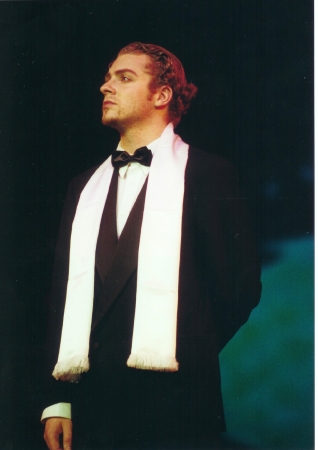
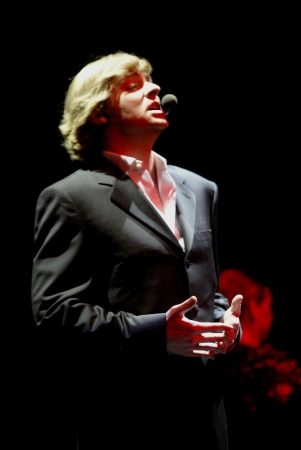
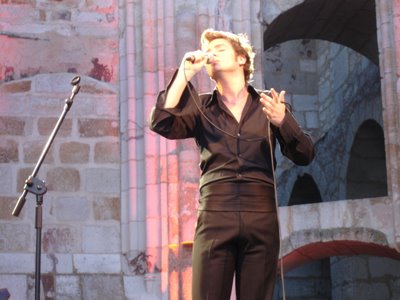
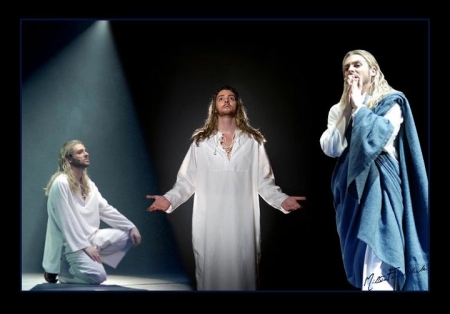
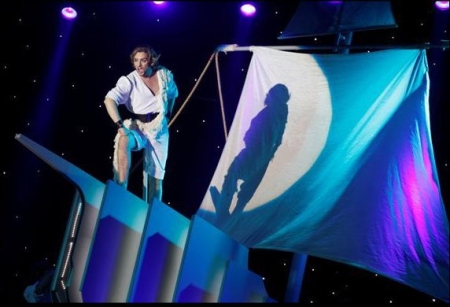
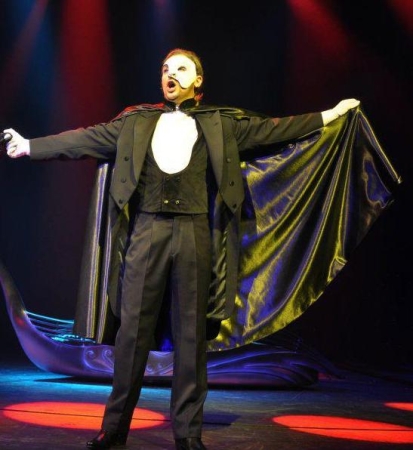




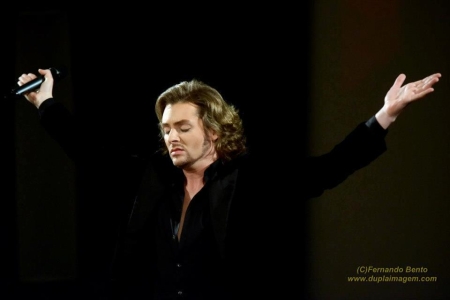
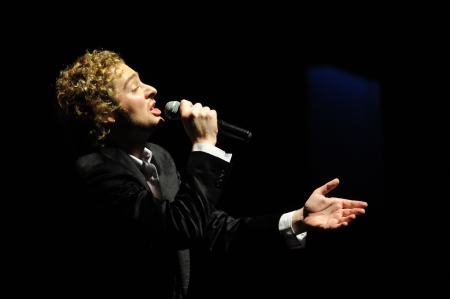


-
Quis Deus Que Fosses Maria Gonçalo Salgueiro (Gonçalo Salgueiro / Joaquim Campos)
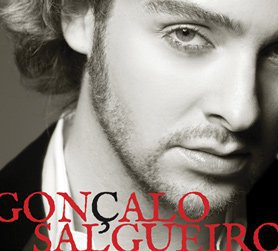
Gonçalo Salgueiro, "Gonçalo Salgueiro", CNM, 2009
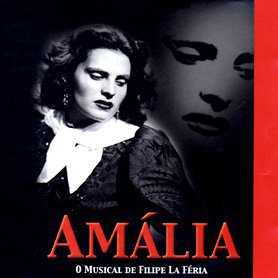
Gonçalo Salgueiro, "Musical Amália", Movieplay, 2001
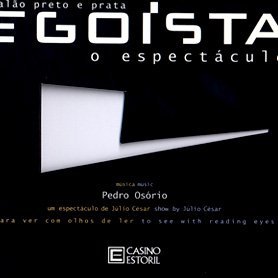
Gonçalo Salgueiro, "Musical Egoísta", Casino Estoril, 2002
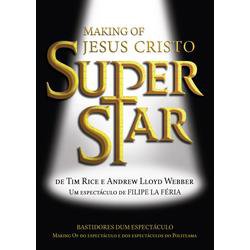
Gonçalo Salgueiro, "Musical Jesus Cristo Superstar", 2007
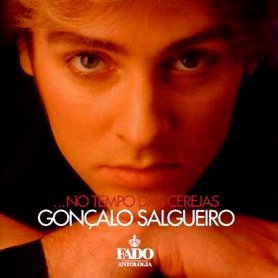
Gonçalo Salgueiro, "No Tempo das Cerejas", CNM, 2003
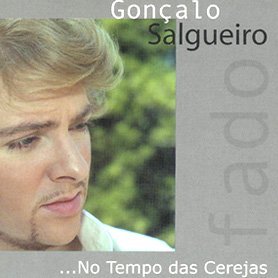
Gonçalo Salgueiro, "No Tempo das Cerejas", Strauss, 2002

Gonçalo Salgueiro, "Segue a Minha Voz", CNM, 2006
